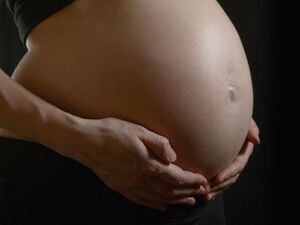High gluten diet in pregnancy linked to child’s type 1 diabetes risk
A study published in the British Medical Journal examined data on more than 63,000 pregnant women.

Women who have a diet high in gluten during pregnancy could increase the risk of their children suffering from diabetes, a study suggests.
Having a high gluten diet during pregnancy can lead to an increased risk of type 1 diabetes among children, according to a study of tens of thousands of women.
Previous studies among animals have shown a gluten-free maternal diet during pregnancy almost “completely prevented” type 1 diabetes among offspring, experts said.
The team of international researchers set out to examine whether a similar effect was found in humans.
The study, published in the British Medical Journal (BMJ), examined data on more than 63,000 pregnant women from Denmark.
The women, who were enrolled into the Danish National Birth Cohort between January 1996 and October 2002, completed a food frequency questionnaire when they were 25 weeks pregnant, which measured the amount of gluten they consumed.
Common foods that contain gluten include bread, pasta and cereal.
The participants were followed up until 2016 to track the development of type 1 diabetes among their children.

They identified 247 cases of type 1 diabetes among children after an average follow-up period of 15.6 years.
The authors concluded that the risk of type 1 diabetes in children “increased proportionately” with maternal gluten intake.
Children of women with the highest gluten intake had double the risk compared with those with the lowest intake.
The authors said more evidence is needed before health officials should make recommendations to change pregnant women’s diets.
In a linked editorial, researchers at the National Institute for Health and Welfare in Finland wrote: “Given that a causal association between maternal gluten intake and type 1 diabetes in children has not yet been established, it is too early to change dietary recommendations on gluten intake in pregnancy.
“However, doctors, researchers and the public should be aware of the possibility that consuming large amounts of gluten might be harmful, and that further studies are needed to confirm or rule out these findings, and to explore possible underlying mechanisms.”
Lucy Trelfa, research communications officer at Diabetes UK, said: “Finding a link between eating more gluten during pregnancy and a higher risk of type 1 diabetes in babies is interesting, but importantly, this research does not show that gluten causes type 1 diabetes.
“It’s also far too early to say just how big a player gluten is.
“Scientists are looking at a range of factors in our genes and our environment, like gluten, that might increase the risk of developing type 1 diabetes.
“But how those factors work together, and their individual importance, is still unclear. We need to understand what causes type 1 diabetes if we’re to prevent it, and research like this takes us closer.
“At this stage, pregnant women don’t need to make any lifestyle changes based on this research. And anyone concerned about their pregnancy should speak to a healthcare professional.”





